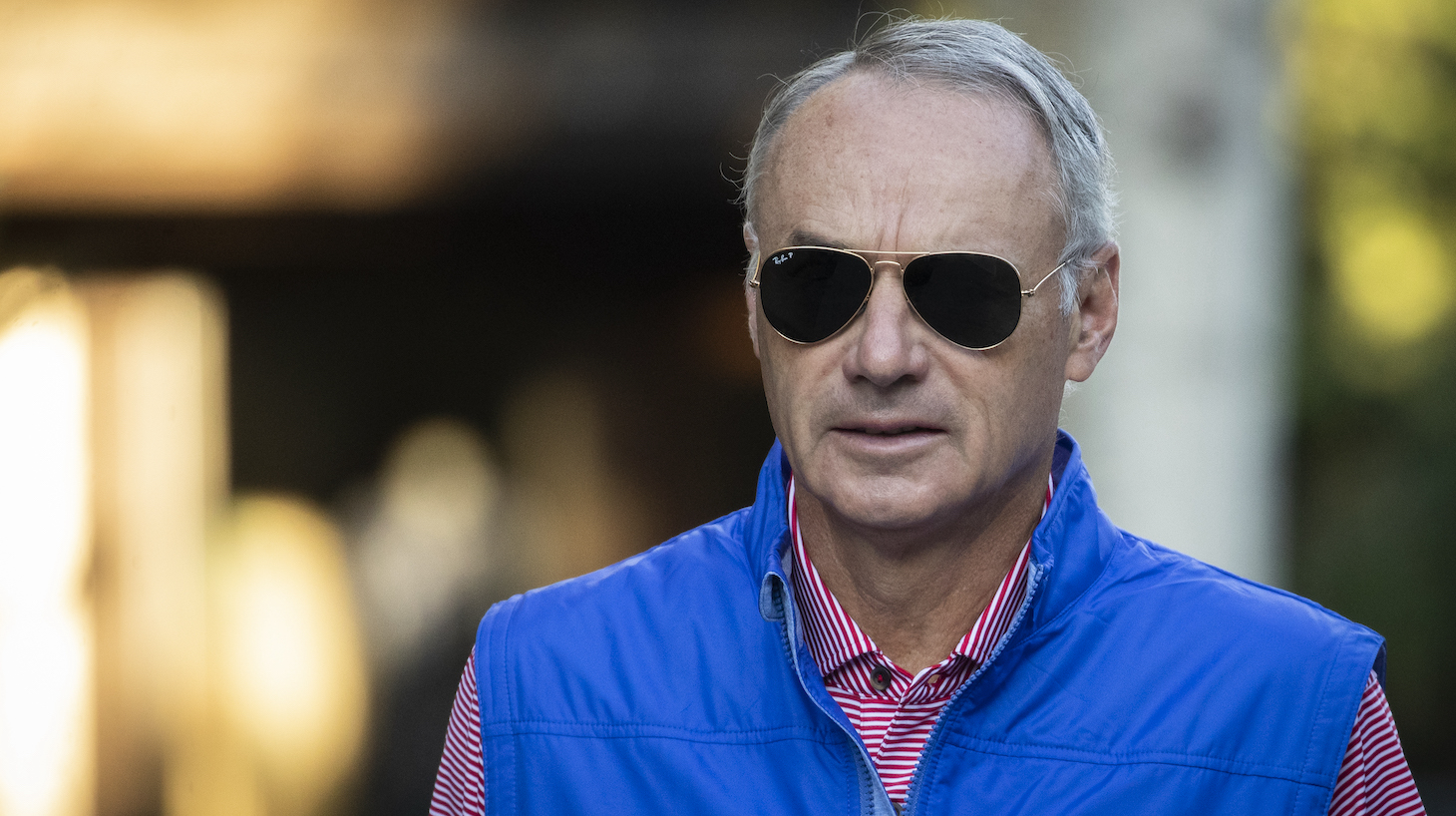While it is certainly true that all labor disputes are ultimately about money, baseball disputes have never been an easy matter of who gets what and in what proportion, or even whether management can achieve the ultimate gratification of reducing the labor force to its original state as serfs. The current baseball dispute seems to partially transcend such mundane things as cash and power and moves to an even more central matter: whether a person in power can still be shamed.
No honest person can look at the alleged issues here and say, “You know, I’ve always had a real problem with Super Two Status.” The inside-baseball issues are rarely clear or troublesome enough for us proles to really grasp. Since management typically applies the level of justice by its systematic ignorance of rules based in fairness, it tends to determine the length and depth of negotiations.
But this lockout has taken a different tone, and more quickly. It is evident that the 30 owners want baseball to be played only after the union has been either smashed or placed on the injured list. This is not in any way about what baseball fans think are their reasons for still caring about this increasingly preposterous game, and they can hear in Rob Manfred’s serpentine speeches all the owners shouting their disinterest in the sport, which is nothing other than the elaborate front for a tech company and real estate grift.
To make this more succinct (and yes, your thanks for such a departure from form are implied and included in the bill), the owners have made almost nothing of an attempt to win the hearts-and-minds battle and have instead presented their case as a matter of the divine right of oligarchs. Your opinion of them is of less importance than your inability to prevent them from being them. They’re letting you see the asbestos in the attic as they install it.
Thus, the question at hand is really about whether aggressive disinterest or even open hostility toward the owners and their view of the business can eventually corrode their will. After all, if Manfred is to be believed (and only an idiot would even try to finish that sentence without bursting into either laughter or flames), baseball is a lousy investment compared to, say, fracking on public lands, slumlording, or stock manipulation. Of course, Manfred is not to be believed, as is clear from his job title.
Owning a sports team is largely still an ego-driven act, as the owner almost always buys/inherits the team so that he or she can act like a lofty benefactor of local culture. Bob Nutting does not own the Pittsburgh Pirates so that he can be called a creosote-hearted cheapjack by those few people in the town who even pay attention to him at all (he is also a newspaper magnate, so you can make of that juxtaposition what you will). He owns it so that he can be recognized and maybe even admired by anyone who has money that he will eventually want to call his own.
And therein lies the truth of ownership. A team allegedly buys you credibility and even envy until the moment when people conclude that you’re really just another idiot like the human mudslide from whom you either bought or inherited the team. Manfred’s very existence shows that owners prefer anonymity because it is not only tactical but protective, and it matters not that Manfred exudes all the warmth of a stranded ice fisherman. Owners can indeed be shamed. It just takes perseverance from the laborers and constant venom from the audience. The answer lies in how much lost revenue and public opprobrium can match the potential benefits of bringing the union to its knees and torso.
That’s a tough bit of math to wallow through, in that the owners never open their actual books let alone their metaphorical ones. Only John Fisher knows how much being reviled in Oakland cuts into his psychic bottom line. Only Greg Johnson knows how much the right-wing nutcases his father Charlie contributes to the vibes in San Francisco. Only Dick Montfort can know how much corrosion to his image has been done by him being the lead of the owners’ negotiating committee.
But soccer’s Super League collapsed because of the power of public shame. So did the Saudi Golf League, although there are still embers out there that might re-revise that particular bonfire. There is therapeutic and strategic value in the simple phrase, “You own the Brewers? Cool. Drop dead.” That time has not yet arrived, and given the baseball industry’s general operating principle of reducing the image of its game to rolling in a vat of razor blades, it may not for some time. But every time Rob Manfred pops up to explain why the owners are the aggrieved party and in doing so reminds us all that the owners are the reason baseball isn’t being played, the day that shame overtakes greed comes closer.
After all, this may at some point become the last game of chicken, in which baseball announces that an agreement has finally been reached and the fans respond by jamming their ear buds deeper into their ear holes and pretending not to notice the annoying posthuman behind the podium proclaiming a victory that actually served only to accelerate defeat.






